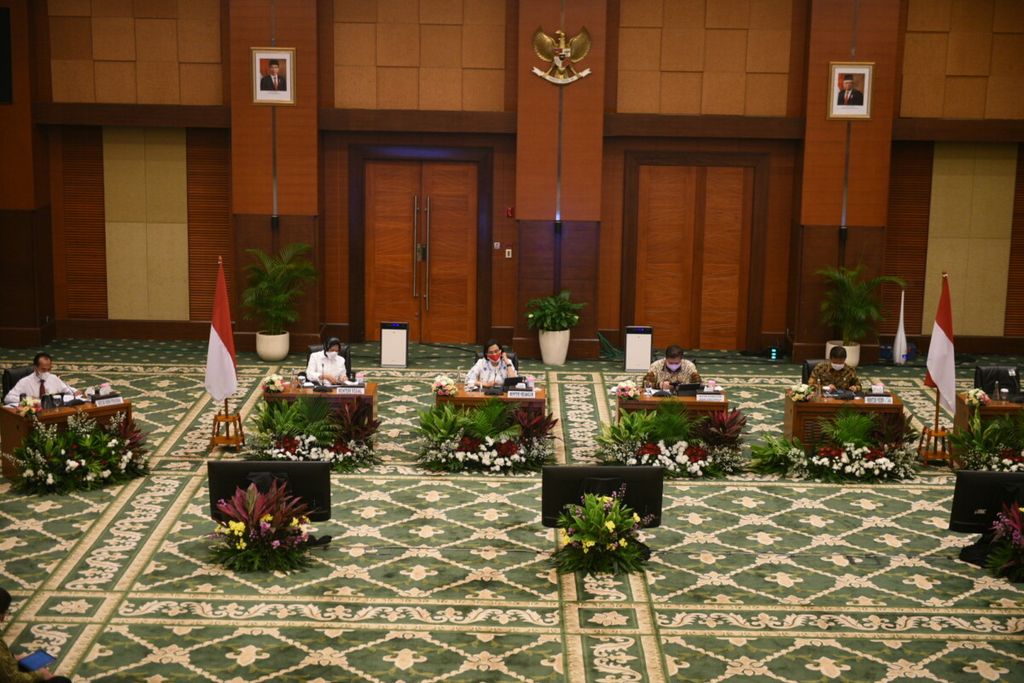Fiscal Consolidation Becomes a Challenge
The government is committed to continuing to manage a healthy and effective fiscal policy so that it can support sustainable and equitable economic growth.

(From left to right) Minister of Transportation Budi Karya Sumadi, Minister of Social Affairs Tri Risma Harini, Minister of Finance Sri Mulyani Indrawati, Coordinating Minister for Economic Affairs Airlangga Hartarto, and Minister of Health Budi Gunadi Sadikin at a press conference on the Financial Note and the 2022 State Budget Bill on Monday (16 /8/2021).
JAKARTA, KOMPAS — The prolonged COVID-19 pandemic has slowed down the fiscal consolidation process. The draft 2022 state budget (RAPBN) is considered to lack the foundation to support fiscal consolidation in 2023.
One form of fiscal consolidation is to bring back the state budget deficit to a maximum of 3 percent of gross domestic product (GDP) in 2023 as initially targeted. Based on Law No. 2/2020 concerning state financial policy and financial system stability for handling the COVID-19 pandemic, the state budget deficit is allowed to exceed the 3 percent threshold only in the 2020-2022 period.